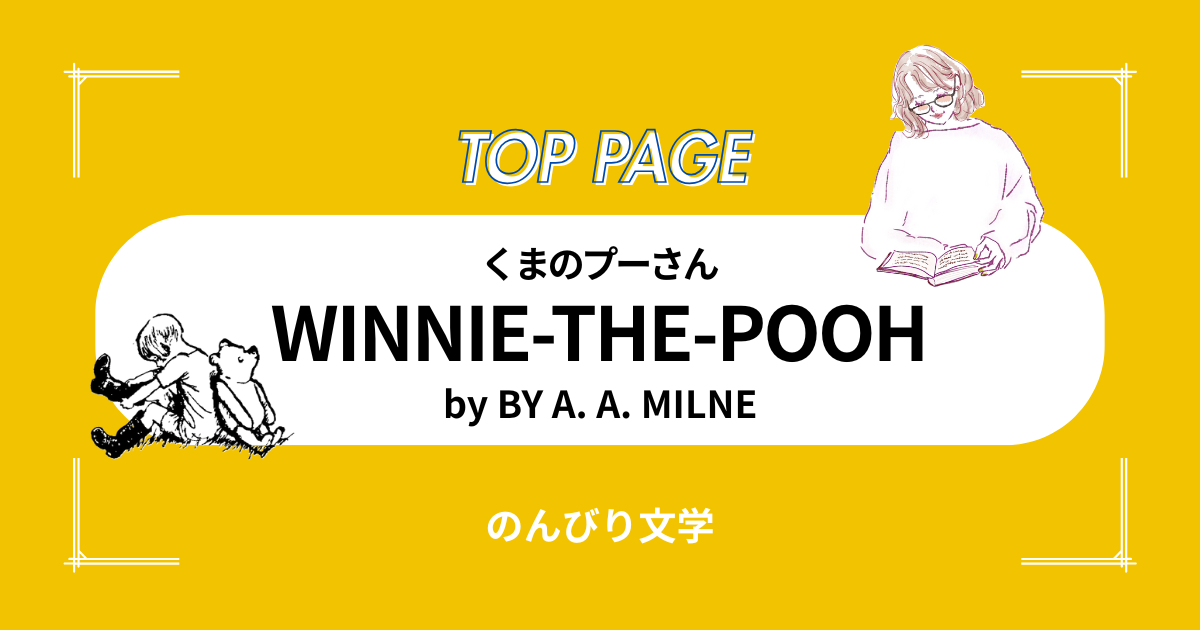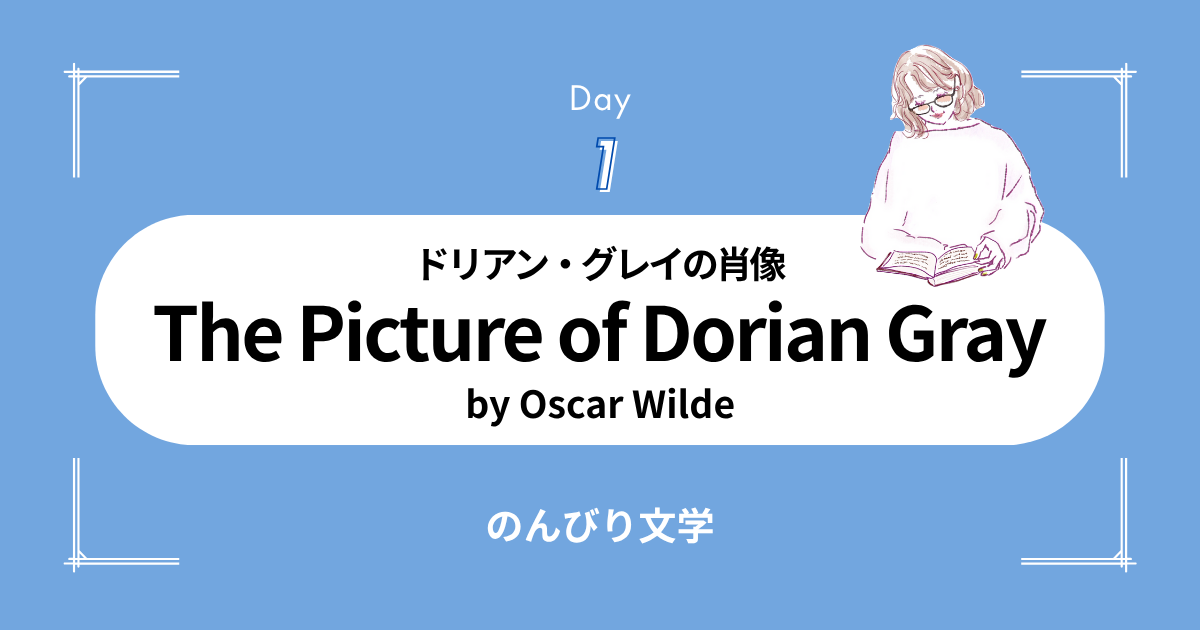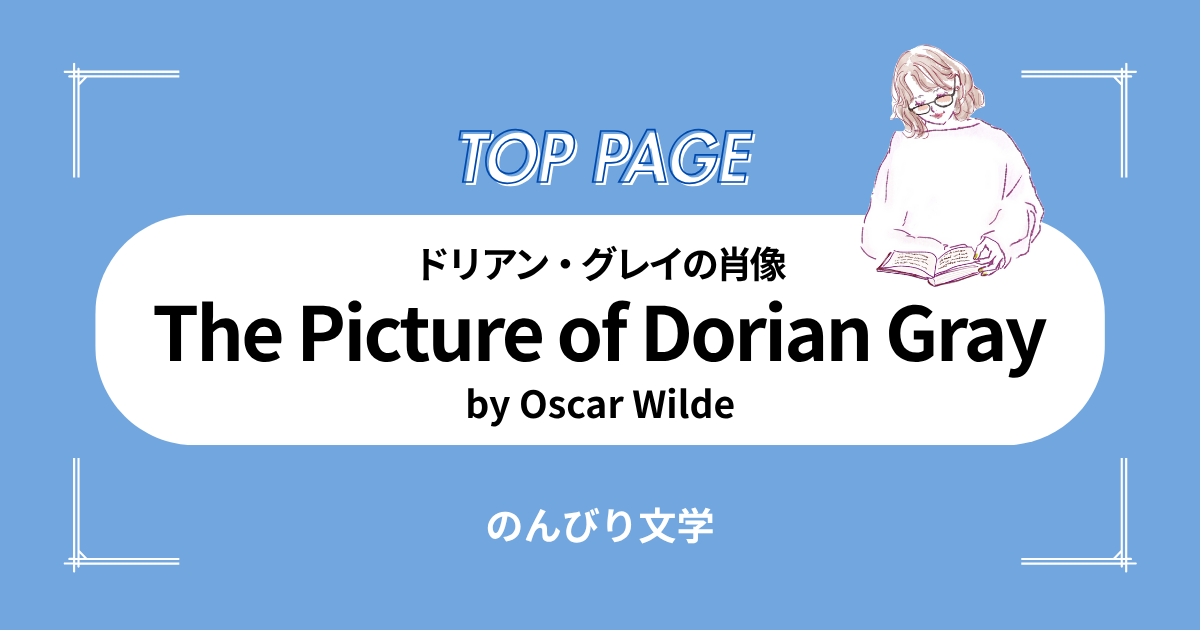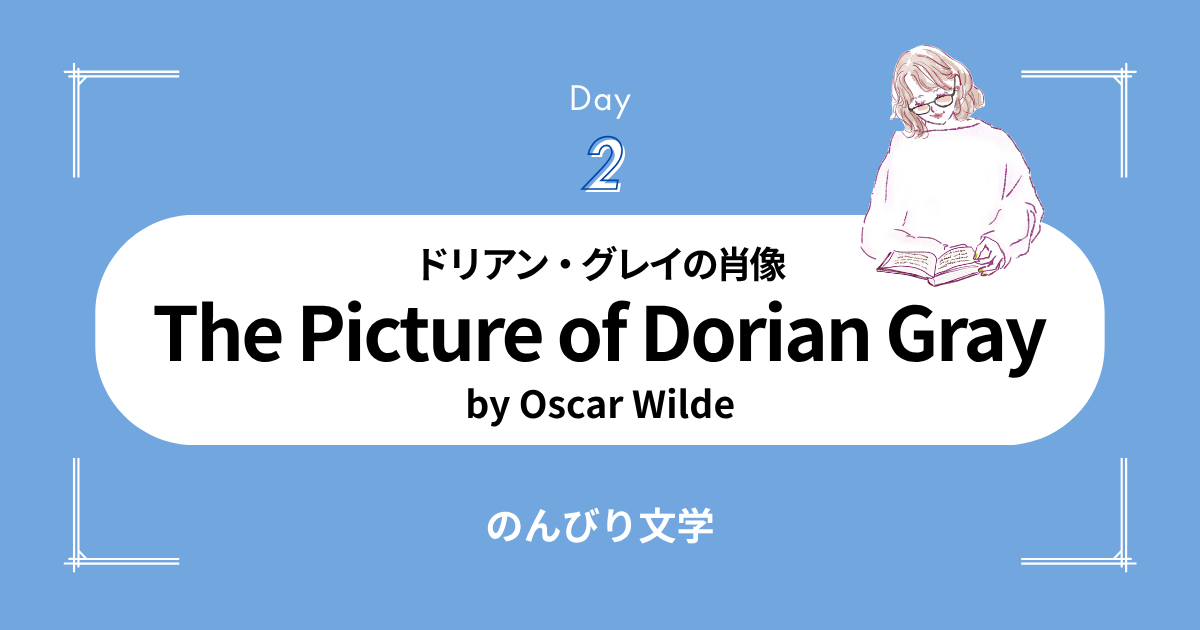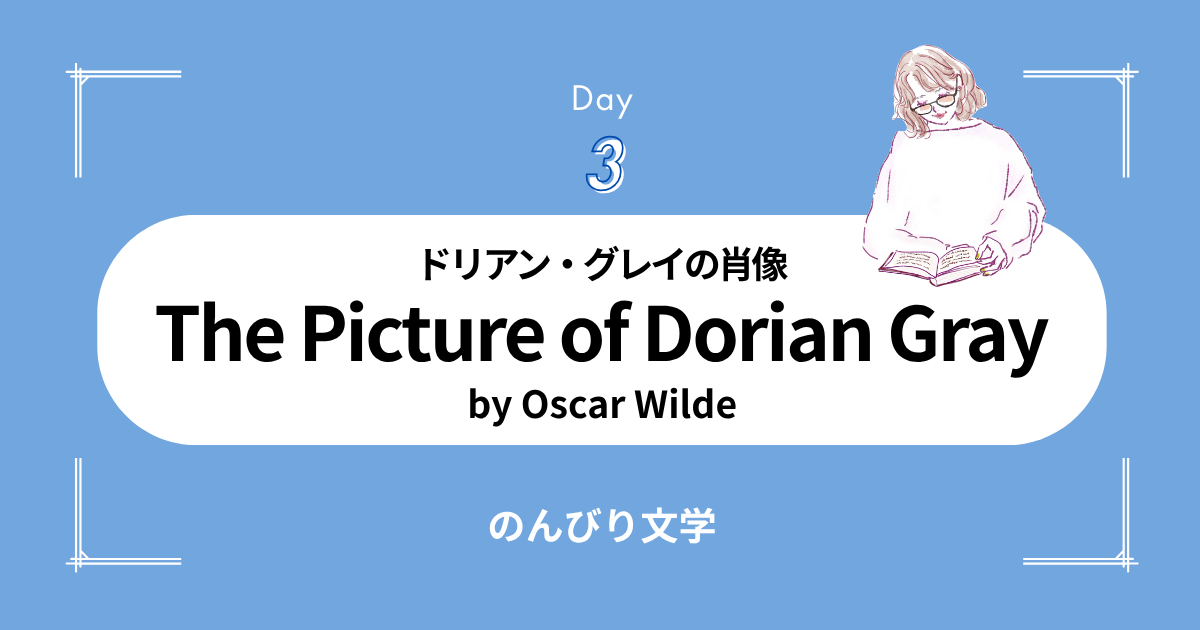【1】『くまのプーさん』誕生の秘密に迫る|心温まる英語表現
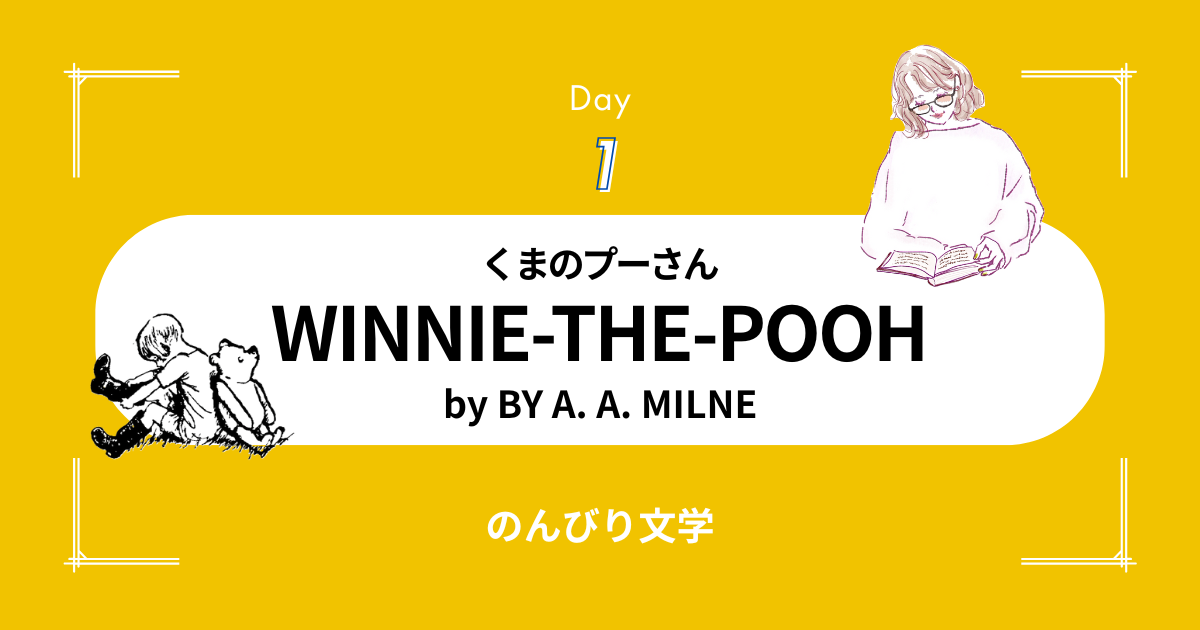
当サイトでは、著作権切れとなった洋書を扱う Project Gutenberg より、文学作品や小説をDLし、学習の素材として使用しています。
タイトル:WINNIE-THE-POOH(くまのプーさん)
著者:BY A. A. MILNE
初版発行:1926年(イギリス)
〔あらすじ〕
物語の舞台は、100エーカーの森という静かな場所。そこには、ちょっとおとぼけで食いしん坊な「くまのプーさん(Winnie-the-Pooh)」と、その仲間たちが暮らしています。プーは、森で起こるささやかな出来事を通して、友情や冒険を体験していきます。
ある日、プーは大好物のハチミツを手に入れようとして、風船につかまって空を飛び上がる作戦に出ますが、うまくいかずに大騒動に。また別の日には、小さな仲間ピグレットとともに「北極探検」と称して冒険に出かけたり、ロバのイーヨーのなくなったしっぽをみんなで一緒に探したりします。
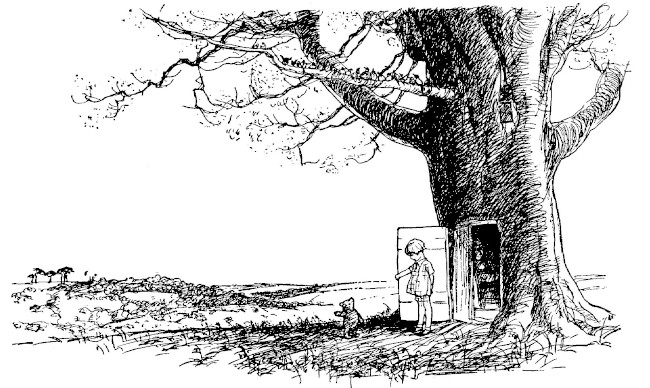
森が大雨で水浸しになった際には、仲間の一人を助けるために勇気をふるい、ささやかだけれど心温まる救出劇も描かれます。その他にも、元気いっぱいのティガーの登場や、おせっかいだけど頼れるラビット、思いやり深いカンガとルーなど、個性豊かなキャラクターたちとの日常が、優しいユーモアと温もりあふれるタッチで綴られていきます。
物語を通して、登場人物たちはささいな出来事に一喜一憂しながらも、互いを思いやり、支え合う姿を見せてくれます。その純粋さと愛らしさが、『Winnie-the-Pooh』を世代を超えて読み継がれる名作へと押し上げています。
この作品は全編を通して 約25,000 words が使われています。
1日に 300~500 words 程度に区切りながら、ゆっくりと読み進めていきたいと思いますので、Day1から順にご自身のペースでお楽しみください。
はじめに
今回は、A.A.ミルンの児童文学『Winnie-the-Pooh』の「INTRODUCTION(序文)」を読み進めていきます。
この部分では、なぜプーさんが「Winnie-the-Pooh」という名前になったのか、そしてピグレットや他の仲間たちとの関係がユーモラスに語られます。
序文ながら愛らしい表現や擬人化の工夫が満載。
英語の表現力を伸ばしたい初級〜中級者におすすめの一節です。
ぜひ丁寧に読み解きながら、物語の世界へ一歩踏み出してみましょう。
本文を読む
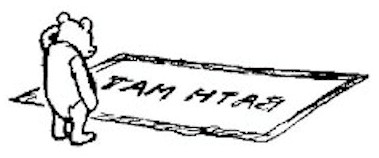
INTRODUCTION
If you happen to have read another book about Christopher Robin, you may remember that he once had a swan (or the swan had Christopher Robin, I don’t know which) and that he used to call this swan Pooh. That was a long time ago, and when we said good-bye, we took the name with us, as we didn’t think the swan would want it any more. Well, when Edward Bear said that he would like an exciting name all to himself, Christopher Robin said at once, without stopping to think, that he was Winnie-the-Pooh. And he was. So, as I have explained the Pooh part, I will now explain the rest of it.
You can’t be in London for long without going to the Zoo. There are some people who begin the Zoo at the beginning, called WAYIN, and walk as quickly as they can past every cage until they get to the one called WAYOUT, but the nicest people go straight to the animal they love the most, and stay there. So when Christopher Robin goes to the Zoo, he goes to where the Polar Bears are, and he whispers something to the third keeper from the left, and doors are unlocked, and we wander through dark passages and up steep stairs, until at last we come to the special cage, and the cage is opened, and out trots something brown and furry, and with a happy cry of “Oh, Bear!” Christopher Robin rushes into its arms. Now this bear’s name is Winnie, which shows what a good name for bears it is, but the funny thing is that we can’t remember whether Winnie is called after Pooh, or Pooh after Winnie. We did know once, but we have forgotten….
I had written as far as this when Piglet looked up and said in his squeaky voice, “What about Me?” “My dear Piglet,” I said, “the whole book is about you.” “So it is about Pooh,” he squeaked. You see what it is. He is jealous because he thinks Pooh is having a Grand Introduction all to himself. Pooh is the favourite, of course, there’s no denying it, but Piglet comes in for a good many things which Pooh misses; because you can’t take Pooh to school without everybody knowing it, but Piglet is so small that he slips into a pocket, where it is very comforting to feel him when you are not quite sure whether twice seven is twelve or twenty-two. Sometimes he slips out and has a good look in the ink-pot, and in this way he has got more education than Pooh, but Pooh doesn’t mind. Some have brains, and some haven’t, he says, and there it is.
And now all the others are saying, “What about Us?” So perhaps the best thing to do is to stop writing Introductions and get on with the book.
重要単語の確認
exciting /ɪkˈsaɪtɪŋ/(形容詞)
わくわくする
Bear(くま)にふさわしい「特別な名前」をつける場面で使用。
wander /ˈwɒndə(r)/(動詞)
歩き回る
「暗い通路を歩いて…」という冒険感を演出する動詞。
impression /ˈwɒndə(r)/(名詞)
印象。ここでは「beautiful things」の印象を別の形で表現するという文脈。
trots /trɒts/(動詞/三単現)
小走りする
動物が元気に走り出る様子を表現。児童文学らしいやわらかい動詞。
jealous /ˈdʒeləs/(形容詞)
嫉妬して
Piglet(ピグレット)の心情をユーモラスに描写。
comforting /ˈkʌmfətɪŋ/(形容詞)
安心させる
ポケットにピグレットを感じることで安心する、という心温まる描写。
覚えておきたい表現
used to call
かつて〜と呼んでいた
“He used to call this swan Pooh” のように「昔は〜だった」ことを示す表現。
without stopping to think
考える間もなく
直訳で「考えるのを止めずに」=「即座に」というニュアンス。
as far as this
ここまで書いたところで
文筆中の進行を示すナチュラルな表現。
come in for
(分け前に)あずかる、得をする
“Piglet comes in for a good many things”のように用い、ポジティブな結果を受ける意味。
there it is
仕方がない、それが現実さ
“Some have brains, and some haven’t, and there it is.” のように現実を淡々と受け入れる語調。
本文と対訳
If you happen to have read another book about Christopher Robin, you may remember that he once had a swan (or the swan had Christopher Robin, I don’t know which) and that he used to call this swan Pooh.
もしあなたが以前にクリストファー・ロビンについての別の本を読んだことがあれば、彼がかつて白鳥を飼っていたこと(あるいは、白鳥の方がクリストファー・ロビンを飼っていたのかもしれませんが)を覚えているかもしれません。そして、その白鳥を「プー」と呼んでいたことも。
That was a long time ago, and when we said good-bye, we took the name with us, as we didn’t think the swan would want it any more.
それはずっと昔のことで、私たちがその白鳥に別れを告げたとき、その名前を持ち帰ることにしました。白鳥はもうそれを欲しがらないだろうと思ったからです。
Well, when Edward Bear said that he would like an exciting name all to himself, Christopher Robin said at once, without stopping to think, that he was Winnie-the-Pooh. And he was.
さて、エドワード・ベアが「自分だけのわくわくする名前が欲しい」と言ったとき、クリストファー・ロビンは即座に考える間もなく「ウィニー・ザ・プーだよ」と言いました。そして、そうなったのです。
So, as I have explained the Pooh part, I will now explain the rest of it.
というわけで、「プー」という部分の説明は終えたので、残りの部分を説明しましょう。
You can’t be in London for long without going to the Zoo.
ロンドンに長くいるなら、一度は動物園に行くものです。
There are some people who begin the Zoo at the beginning, called WAYIN, and walk as quickly as they can past every cage until they get to the one called WAYOUT,
動物園の入り口「WAYIN」から入り、すべての檻を駆け足で見て回って、出口「WAYOUT」にたどり着く人もいますが、
but the nicest people go straight to the animal they love the most, and stay there.
素敵な人たちは、一番好きな動物のところへ直行して、そこでゆっくり過ごすのです。
So when Christopher Robin goes to the Zoo, he goes to where the Polar Bears are, and he whispers something to the third keeper from the left,
だからクリストファー・ロビンが動物園に行くと、白くまのいる場所へ向かい、左から3人目の飼育員に何かをささやきます。
and doors are unlocked, and we wander through dark passages and up steep stairs,
ついに特別な檻にたどり着き、その檻が開かれ、茶色でもふもふした何かが小走りで出てくるのです。
and with a happy cry of “Oh, Bear!” Christopher Robin rushes into its arms.
そして「おお、くまさん!」と嬉しそうに叫びながら、クリストファー・ロビンはその腕に飛び込むのです。
Now this bear’s name is Winnie, which shows what a good name for bears it is,
このくまの名前はウィニーで、いかに「Winnie」という名前がくまにぴったりかがわかります。
but the funny thing is that we can’t remember whether Winnie is called after Pooh, or Pooh after Winnie.
でもおかしなことに、ウィニーがプーの名前をとったのか、それともプーがウィニーから取ったのか、私たちは思い出せないのです。
We did know once, but we have forgotten….
昔は知っていたのに、もう忘れてしまいました……。
I had written as far as this when Piglet looked up and said in his squeaky voice, “What about Me?”
ここまで書いたところで、ピグレットがきいきい声で「ぼくのことは?」と言いました。
“My dear Piglet,” I said, “the whole book is about you.”
「親愛なるピグレット、」私は言いました。「この本全体が君についてのものだよ。」
“So it is about Pooh,” he squeaked.
「ということは、プーのことでもあるよね。」と、彼はきいきい言いました。
You see what it is. He is jealous because he thinks Pooh is having a Grand Introduction all to himself.
わかりますか? 彼はプーだけが盛大な紹介を受けていると思って、やきもちを焼いているのです。
Pooh is the favourite, of course, there’s no denying it,
もちろんプーが一番人気なのは間違いありません。
but Piglet comes in for a good many things which Pooh misses;
でもピグレットは、プーが逃してしまうような素敵なことをたくさん味わっているのです。
because you can’t take Pooh to school without everybody knowing it,
というのも、プーを学校に連れて行ったら、誰にでもバレてしまいますが、
but Piglet is so small that he slips into a pocket,
ピグレットはとても小さいので、ポケットにすっぽり入ります。
where it is very comforting to feel him when you are not quite sure whether twice seven is twelve or twenty-two.
「7×2が12か22か」よくわからなくなったときでも、ポケットの中のピグレットを感じると、とても安心するのです。
Sometimes he slips out and has a good look in the ink-pot, and in this way he has got more education than Pooh,
時にはピグレットがポケットから出て、インク壺をのぞき込みます。そうして彼はプーよりもたくさん学ぶのです。
but Pooh doesn’t mind.
でもプーは気にしません。
Some have brains, and some haven’t, he says, and there it is.
「頭があるやつもいれば、ないやつもいる。それだけのことさ。」とプーは言います。
And now all the others are saying, “What about Us?”
そして今、ほかのみんなも「ぼくたちは?」と言い始めました。
So perhaps the best thing to do is to stop writing Introductions and get on with the book.
だから、もう「まえがき」はやめにして、本編を始めた方が良さそうです。
理解度チェック
今日のリーディン範囲について、理解度をチェックしてみましょう。
以下の文の空欄に適切な語を選んでください。
Q1. Christopher Robin used to call the swan _.
A. Edward
B. Winnie
C. Pooh
D. Piglet
- 解答はここをクリック
-
正解:C. Pooh
記述に “he used to call this swan Pooh” とある。
Q2. Piglet sometimes slips into a _.
A. drawer
B. book
C. cage
D. pocket
- 解答はここをクリック
-
正解:D. pocket
“Piglet is so small that he slips into a pocket” と記述されている。
Q3. Why did Christopher Robin choose the name “Winnie-the-Pooh”?
A. Because the bear liked it.
B. Because he heard it at the zoo.
C. Because he thought it was exciting.
D. Because Piglet suggested it.
- 解答はここをクリック
-
正解:C.Because he thought it was exciting.
“Edward Bear said he would like an exciting name all to himself” の流れから、Cが正解。
Q4. What does Piglet feel in the Introduction?
A) poorly
B) morally
C) perfectly
D) artistically
- 解答はここをクリック
-
正解:C. Jealous
明確に “He is jealous because he thinks Pooh is having a Grand Introduction” と記載あり。
Q5. According to the narrator, what is Pooh’s attitude toward intelligence?
A. He wants to be the smartest.
B. He doesn’t care.
C. He feels superior to Piglet.
D. He studies hard.
- 解答はここをクリック
-
正解:B.
“Some have brains, and some haven’t, he says, and there it is.” から、Poohは気にしていないと読み取れる。
まとめ
『Winnie-the-Pooh』の序文は、物語が始まる前からユーモアと愛情が溢れています。
名前の由来から登場キャラクターのやり取りまで、
短い中に豊かな表現が凝縮されています。
特にPigletの嫉妬心やPoohの哲学的なセリフなど、英語表現を学びながら心を和ませてくれる構成です。
次回は本編へと進み、さらに深い学びを楽しんでいきましょう!


